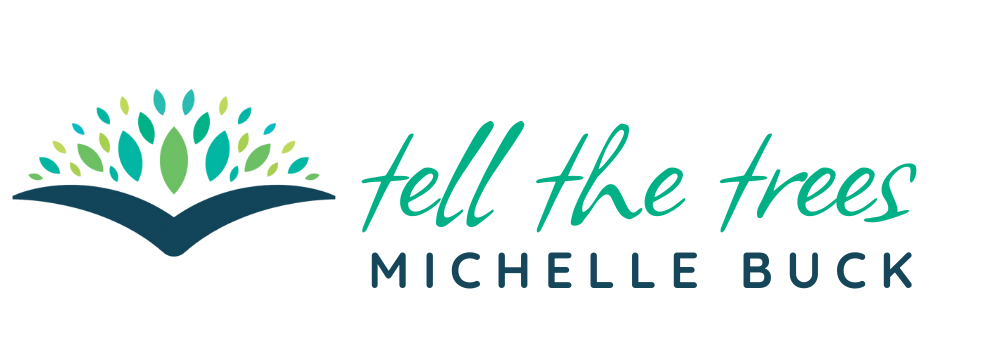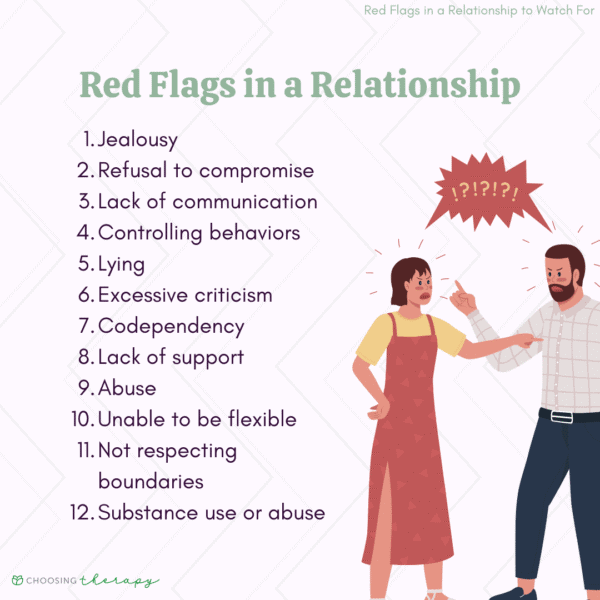by Michelle
Share
by Michelle
Share

As authors, we put our hearts on the page and then send our work out into the world, hoping it resonates with readers. But let’s be real—not everyone is going to love what we create, and some people are going to be downright nasty about it.
If you’ve ever published a book, shared your writing online, or built an author platform, you’ve probably encountered both helpful feedback and cruel comments. The trick is learning to tell the difference and responding appropriately to each.
Maybe it’s a negative book review, a comment under a post, or a social media rant. It’s important to know how to handle these issues so you can create a safe and welcoming platform that allows discussion, but doesn’t enable abuse.
Red Flags & Green Flags
I like to look at these as red flags vs green flags. We all have heard about red flags in relationships and at work. Can we apply these to our author platforms? YES!
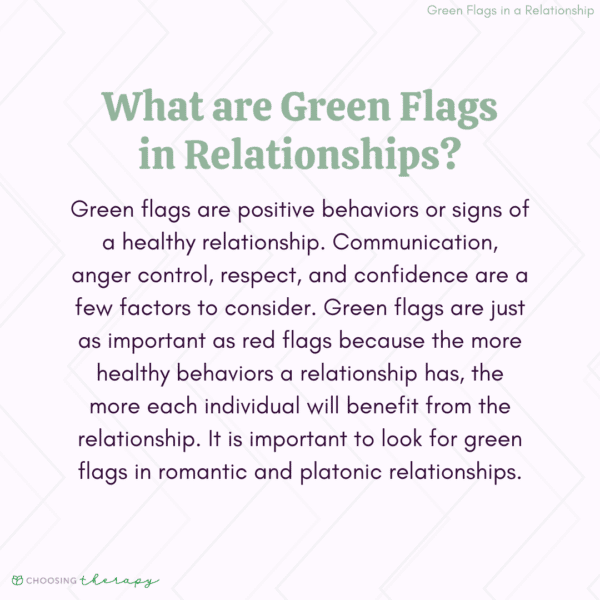
Photo credit: choosingtherapy.com
Even though the above images of red flags vs green flags are speaking about relationships, we can apply them to online interactions as well.
- Is the comment supportive or trying to tear you down?
- Is it helpful and giving you useful feedback?
- Is the person attacking you, your ability to create, or shaming you for existing?
- Do you feel controlled or the criticism is excessive?
- Are you able to make some important changes based on the feedback?
These are questions I will cover. So keep reading!
Red Flags: Spotting Internet Hate and Trolls
I had someone tell me I shouldn’t block people on Substack. They seemed to think authors should throw a party every time someone leaves an insulting comment because it helped their personal growth. No and no. If you cross the line into cruel intentions, you can leave.
We don’t have to celebrate cruelty. Here’s how to spot the difference between someone genuinely trying to help and someone just looking to tear you down.
Cruel comments typically:
- Offer zero specifics: “You’re a terrible writer” tells you nothing useful
- Use dismissive language: They attack your right to exist or create. Example: Your writing is completely awful and no one cares what you have to say.
- Focus on emotional dumping: They’re venting their feelings, not offering value
- Come from anonymous or minimal profiles: No profile picture, fake name, brand new account
- Attack unrelated aspects: Going after your appearance, background, or personal life instead a specific element of your work
- Are designed to shame: “This is embarrassing” or “You should quit writing”
- Provide no actionable feedback: They tell you what’s wrong but never how to improve
For example, I recently had someone tell me my post was “wordy and useless.”
Thanks for nothing, buddy!
That comment gave me absolutely zero information I could work with to improve my content.
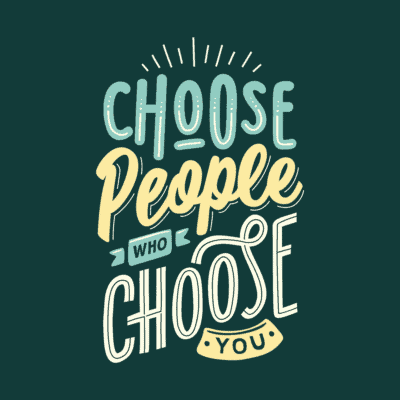
Green Flags: Recognizing Constructive Criticism
Now, constructive criticism might sting initially (our egos are fragile creatures), but it leaves you with something valuable: a path forward. Here’s what genuine feedback looks like:
Constructive criticism:
- Points to specific examples: They reference exact passages, scenes, or sections
- Makes actionable suggestions: They tell you how to improve, not just what’s wrong
- Focuses on the work, not on you as a person: Your writing choices, not your worth as a human
- Uses a balanced approach: They might mention what’s working alongside what needs work
- Maintains a professional tone: No insults or personal attacks
- Shows genuine engagement: They actually read or consumed your content
- Comes from a credible source: Other writers, industry professionals, or engaged readers
- Has educational intent: They want to help you improve
Examples of helpful feedback:
- “Maybe add more transitions between scenes”
- “Your marketing tips are solid, but some examples would make them even stronger”
- “I loved your voice, but some paragraphs could be broken up for easier reading”
- “Great concept, but the conclusion felt abrupt and could use more development”
I had someone comment on my YouTube videos suggesting I look more at the camera because it would be more engaging. While it initially made me self-conscious, they were right–and they delivered the feedback in a way that felt helpful, not hurtful.
How to Handle Internet Hate Like a Pro
When you encounter genuine cruelty (not constructive criticism), here’s your game plan:
Immediate Response Strategies
- Don’t engage. Seriously. You don’t need to argue with someone who’s determined to be cruel. Block them if necessary—you don’t owe anyone access to you, especially if they’re being rude or abusive.
- Screenshot if needed. Sometimes you need proof that someone was being abusive, especially for extreme cases. Take the screenshot, then delete the comment.
- Step away. Don’t respond in the heat of emotion. When someone attacks your work (or you personally), your first instinct might be to attack back. Don’t do it—that just makes you look as bad as they do.
Processing the Emotional Impact
- Feel your feelings. It’s completely normal to feel hurt and angry when someone is cruel about your work. Don’t pretend it doesn’t sting. Vent to trusted friends if you need to get it out of your system.
- Remember the source. Consider who this is coming from. Is it someone whose opinion actually matters? Often, it’s just some random person who dumped their bad day on you.
- Focus on your real audience. The people who actually benefit from your work don’t think this way about you. One cruel comment doesn’t represent your entire readership.
Long-Term Strategies
- Use it as fuel. Channel that anger into proving them wrong. When someone told me my writing was “useless,” my response was essentially: “F you, man. I write books, lots of people find value in what I do, and you can read my positive reviews if you don’t believe me.”
- Set boundaries early. Make it clear what kind of behavior you’ll tolerate on your platforms.
- Build a support network. Connect with other authors who understand what you’re going through.
- Collect positive feedback. Keep a folder of good reviews, helpful comments, and encouraging messages. When the cruel comments hit, you’ll have evidence that not everyone thinks that way about you.
- Remember your why. Focus on the people you’re helping and how your work makes a difference in their lives.
How to Handle Constructive Criticism (The Good Stuff)
When someone offers genuine constructive criticism, here’s how to make the most of it:
- Say thank you. Even if it stings initially, recognize that they’re trying to help you improve.
- Don’t defend immediately. Sit with the feedback first. Think about it. Your initial reaction might be defensive, but give it time to settle.
- Ask clarifying questions. Make sure you understand exactly what they mean. We don’t always have the same perspective, so dig deeper to get the full picture.
- Take notes. Don’t let good advice slip away. If you can’t work on their suggestions right now, write them down for later.
- Evaluate the source. Not every piece of constructive criticism needs to be implemented. Consider whether this person is qualified to give feedback on your specific work. Are multiple people saying the same thing? That’s when you really need to pay attention.
- Separate your ego from your craft. Your worth as a person doesn’t equal your current skill level. You can improve without diminishing your value as a human being.
- Test the advice. Try implementing small changes first and see how they work. You don’t need to overhaul everything at once.
- Prioritize feedback. Focus on changes that will have the biggest impact first.
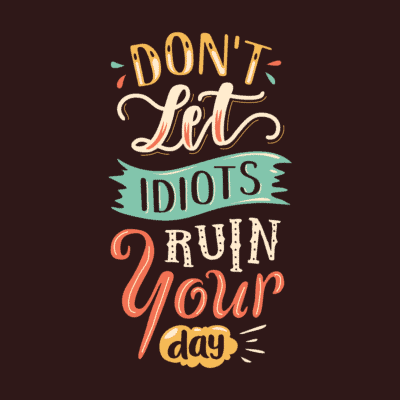
What You’re NOT Required to Do
Here’s what I want you to remember:
- You’re not required to accept abuse in the name of “growth.”
- You’re not required to engage with every person who has an opinion.
- You’re not required to justify your right to create and share your work.
Internet hate will always be a problem online, but does that mean you need to engage?
You don’t need to develop “thicker skin” to tolerate cruelty. If someone is being cruel to you, you can shut it down immediately. You don’t need to be shamed just because someone wants to dump their negativity on you.
You are allowed to:
- Block people who are cruel
- Set boundaries about how you’re treated
- Take up space as a creator
- Choose which feedback to accept or ignore
Your sensitivity as a writer isn’t a weakness—it’s often what makes your work authentic and relatable. Don’t let trolls convince you that their cruelty is somehow necessary for your growth.
Find Genuine Support & Ignore Internet Hate
The world needs more authentic voices, not fewer. Those people leaving cruel comments usually aren’t offering anything constructive anyway—they’re just trying to make themselves feel better by tearing someone else down.
There’s a huge difference between constructive criticism (which helps you grow) and cruel comments or internet hate (which are just someone else’s emotional garbage). Learn to recognize the difference, respond appropriately to each, and keep creating work that matters.
Your voice deserves to be heard, and the right readers are out there waiting for exactly what you have to offer.
Watch on YouTube
Want to connect with other authors navigating the ups and downs of the publishing journey? Join our supportive community at tellthetrees.substack.com where we share real talk about writing, publishing, and building an author platform.
Tell the Trees is supported by its readers. When you make a purchase using links on this site, it may result in affiliate commission. Please visit my affiliate disclosure page for more information.
Let's Discuss It
Accessibility isn’t just nice to have; in fact, it’s now more important than ever. In 2025, over 1.3 billion people worldwide live with some form of disability, and many use e-readers or screen readers to access digital content. Yet most self-published authors continue to create ebooks that unintentionally exclude these readers. Microsoft Word, a tool
After my post about the European Accessibility Act, I got some fantastic questions from you that made me realize we need to have a more practical conversation especially regarding digital products. My original post focused on what’s been published — either written by lawyers for lawyers or aimed at big publishers with compliance departments. But what
One of the most often missed topics when it comes to writing and your office workspace is productivity. As a writer, you are focused on drafting, editing, book covers, ARC Reviews, and other important self-publishing topics, we forget that there are more efficient ways to do things. In your office or writing space, you might
The biggest threat for authors on Substack isn't competition or algorithm changes. It's something far more basic: the platform itself. Let's learn more.
